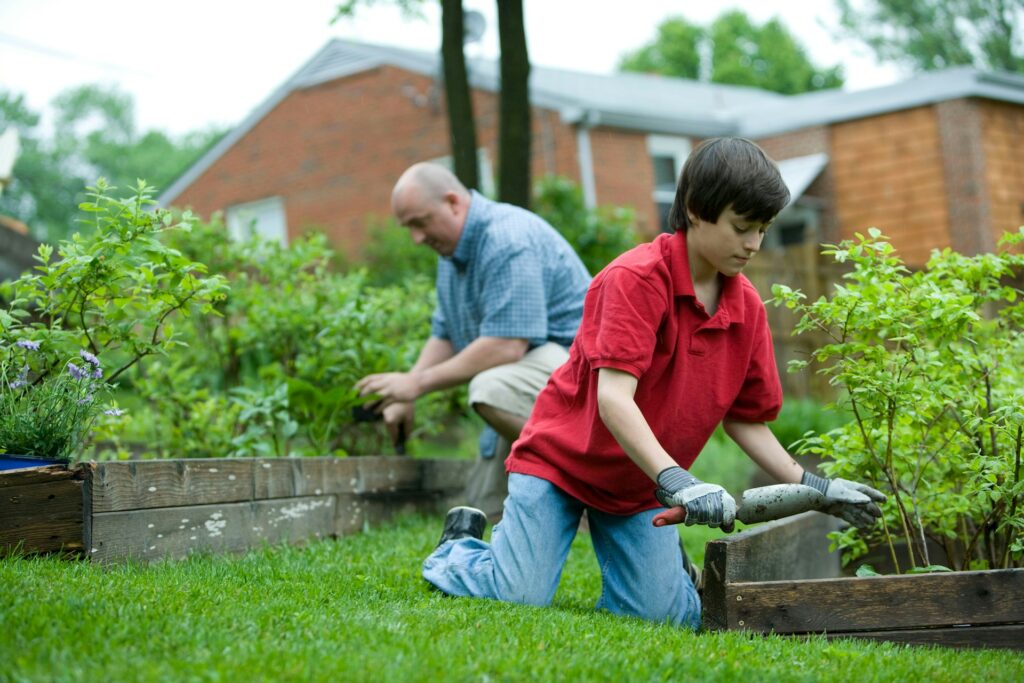As a conscientious home gardener, you understand the importance of nourishing your plants with the proper nutrients. You’ve probably heard about organic fertilizers, and perhaps you’re even using them in your garden. But do you truly comprehend their benefits, or how to use them effectively? Do you know the difference between animal-based and plant-based organic fertilizers, or when to apply them for the best results? If not, you’ve landed on the right page.
Northwest Landscape Supply has compiled a comprehensive guide with frequently asked questions on organic fertilizers for home gardeners. Get ready to discover how organic fertilizers can breathe new life into your soil, energize your plants, and transform your home garden into a thriving oasis.
What Are Organic Fertilizers?
Organic fertilizers are derived from natural materials such as plants, animals, or minerals. These fertilizers can come in various forms, including solid, granular, or liquid. They release essential nutrients slowly and steadily, making them an eco-friendly and sustainable option for gardeners interested in fostering plant growth while minimizing environmental impact. Examples of organic fertilizers include compost, manure, bone meal, and fish emulsion.
Why Are Organic Fertilizers Beneficial?
There are several advantages to using organic fertilizers in your home garden. Here are the key benefits:
1. Slow Nutrient Release: Organic fertilizers release nutrients gradually over time, providing a consistent supply of essential elements and reducing the risk of over-fertilization or nutrient runoff.
2. Improved Soil Structure: These fertilizers contribute to better soil structure by encouraging the growth of beneficial microorganisms and fostering a healthy environment for roots.
3. Environmentally Friendly: Organic fertilizers are biodegradable and derived from renewable resources, reducing their environmental impact and ensuring a sustainable gardening approach.
4. Enhanced Plant Health: Organic fertilizers contribute to overall plant health by providing nutrients more naturally, promoting stronger growth and resilience to diseases and pests.
How to Choose the Right Organic Fertilizer for Your Garden?
When selecting an organic fertilizer for your garden, it is crucial to consider the specific needs of your plants, soil type, and local environmental conditions. Here are some factors to keep in mind:
1. Soil Test: Conduct a soil test to identify the nutrient deficiencies in your garden. This will help you choose the appropriate organic fertilizer to match your plants’ requirements.
2. Nutrient Composition: Organic fertilizers usually contain a mix of macronutrients (nitrogen, phosphorus, and potassium) and micronutrients (calcium, magnesium, sulfur, and trace elements). Read the label to understand the nutrient composition and choose a fertilizer that provides the necessary elements for your plants.
3. Application Method: Consider the required application method and frequency for the chosen organic fertilizer. While some can be applied directly to the soil, others may need to be diluted or mixed before use.
4. Budget and Availability: Evaluate your budget and the availability of organic fertilizers in your area. Weigh the costs and benefits to determine the best option for your garden.
How to Apply Organic Fertilizers?
Organic fertilizers can be applied in several ways, depending on the type and form of the fertilizer. Here are some common methods:
1. Side Dressing: Gently work the fertilizer into the soil around the base of your plants, ensuring that the nutrients are accessible to the root system.
2. Top Dressing: Spread the fertilizer evenly over the soil surface and lightly mix it into the topsoil layer, taking care not to damage the roots.
3. Liquid Application: Dilute liquid fertilizers according to the label instructions and apply directly to the root zone or as a foliar spray.
4. Soil Amendment: Incorporate organic fertilizers like compost or aged manure thoroughly into the soil before planting, enhancing nutrient content and improving soil structure.
What Are Some Common Organic Fertilizers?
1. Compost: A rich, organic humus made from decaying plant and animal materials, compost provides essential nutrients and improves soil structure in your garden beds.
2. Aged Manure: Cow, horse, or chicken manure aged for at least six months offers slow-release nutrients and boosts the organic matter content in your soil.
3. Bone Meal and Blood Meal: Excellent sources of phosphorus and nitrogen, respectively; these animal byproducts promote strong root development and robust vegetative growth.
4. Fish Emulsion: A liquid fertilizer produced from fish processing waste, fish emulsion is rich in essential nutrients and beneficial for a wide range of plants.
5. Rock Phosphate: A natural, slow-release source of phosphorus, rock phosphate is beneficial for plant root development and the production of flowers and fruits.
6. Greensand: Derived from oceanic minerals, greensand is rich in potassium and micronutrients, helping to improve water retention and overall soil fertility.
Growing Greener Gardens with Organic Fertilizers
As a responsible gardener, opting for organic fertilizers allows you to promote healthier plant growth, improve soil structure, and contribute to a more sustainable ecosystem. Taking the time to understand the different types, application methods, and benefits of organic fertilizers will ensure you make informed choices and optimize their impact on your garden.
At Northwest Landscape Supply, we’re proud to offer an extensive range of organic fertilizers in Edmonds, WA, to help you cultivate the thriving green space you desire. If you have any questions or need personalized advice for your gardening needs, don’t hesitate to contact us. Our knowledgeable team is ready to support you in creating the perfect, environmentally-friendly garden sanctuary!





